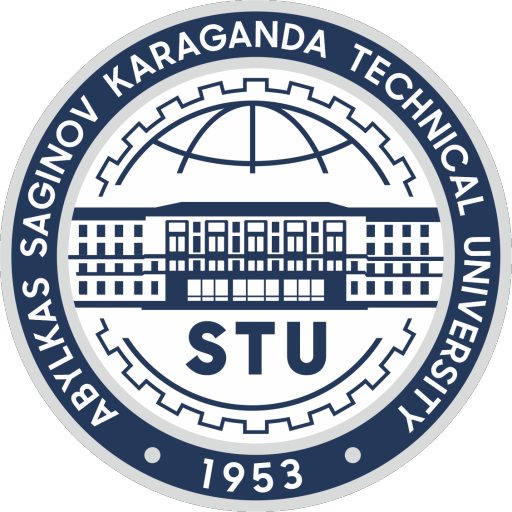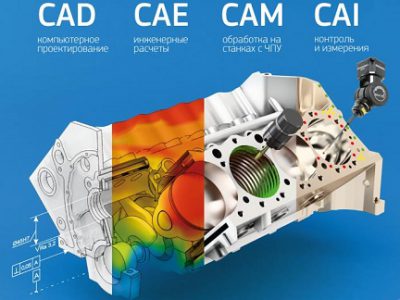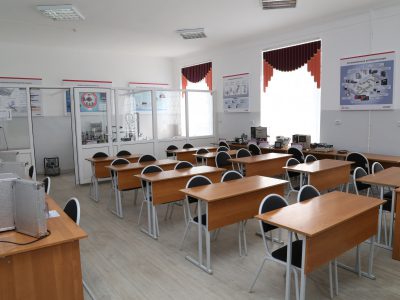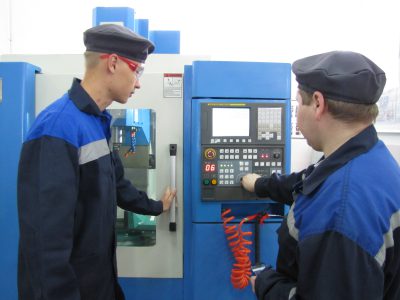For qualitative improving the practical training of specialists in the system of higher technical education, it is of great importance to develop and introduce elements of dual education into the educational process including those through the forming modern centers of applied qualifications. In dual training, the principle of the relationship between theory and practice is implemented, which allows acquiring by a future specialist the needed competences in the process of working at an enterprise. Such training is as close as possible to specific production requirements, while employers themselves will participate in the training of specialists of the required level.
The world practice shows that in the context of global competition and rapid changes in the content and the list of professions itself, one can become a demanded specialist with continuous self-education throughout one’s life. Today, the potential of universities is determined not only by the quality of educational services provided but also by the development of the entire triad “Education – Science – Innovation” aimed at forming a laboring person, a citizen and a professional. There is a special demand for specialists of a new formation with a wide range of competences and competitive skills. In this regard, one of the priorities in the technical universities activities is the targeted training of personnel for implementation of specific projects of industrial and innovative development.
Dual training is a promising trend in training specialists for the real sector of the economy with participation of business focused on the international quality standards, both for manufactured products and personnel qualifications. This model of vocational education will make it possible to train specialists focused on real production, to increase the enterprise participation in the educational process and to ensure variability of individual educational programs, to increase the prestige of professions through the development of new forms of education and to ensure significant improving in the qualifications of workers.
The training of competitive specialists is the main priority in the activities of Karaganda Technical University, on the basis of which the innovation and educational consortium “Corporate University” has been successfully operating for 12 years in which structure there are 70 leading industrial enterprises of Kazakhstan.
To introduce the elements of dual education in the process of training specialists and to better adapt them to the conditions of real production at the university, there have been organized Centers of Working Professions equipped with modern equipment. So, in the Center of Mechanical Engineering, students are trained in such working professions as a general-purpose machine operator, a mechanic-repairman of industrial equipment, a turner, a milling machine operator, a driller and a grinder. The Welding Center has passed international accreditation and is training welding specialists of all levels with the issuance of international diplomas recognized in 56 countries of the world – members of the International Institute of Welding Club on the orders of such enterprises as ArcelorMittal Temirtau, Karachaganak Petroleum Operating, ERSAI, Bogatyr Komir and others.
In addition, training sessions were organized in 60 branches of the university graduating departments at the enterprises of the Consortium. In particular, according to the agreement on cooperation between the department of Technological Equipment, Mechanical Engineering and Standardization of Karaganda Technical University and the Maker KLMZ LLP, the classes of the dual form of training are conducted in the classrooms of the maker KLMZ LLP. In addition to lectures, the company conducts practical and laboratory classes, as well as industrial and pre-graduation practice. To satisfy engineering enterprises with high-level specialists, the department is implementing a new educational program “Digital Technologies in Mechanical Engineering”.
In the conditions of quarantine, implementation of dual education at technical universities has faced the problem of transition to distance learning. For this, Karaganda Technical University is already implementing 7 and developing 16 new educational programs related to digital production.
In the formation of industry partnerships, the role of professional associations is important, which makes it possible to advance in cooperation between the university and production. This cooperation covers a wide range of issues: from the development of educational and qualification standards to the academic mobility of students and teachers and the employment of young professionals. After all, the main goal of introducing the dual training model is to train specialists taking into account the real needs of the economy.
KTU Press Service



